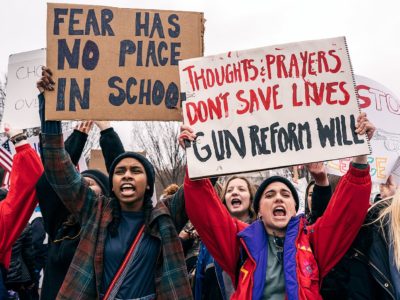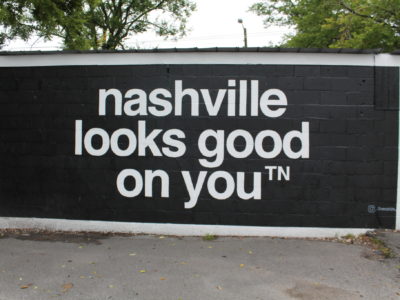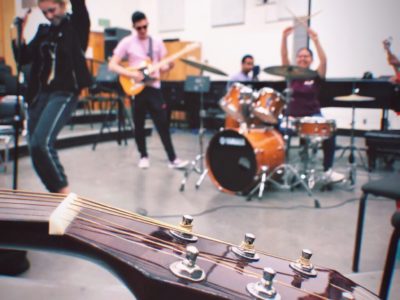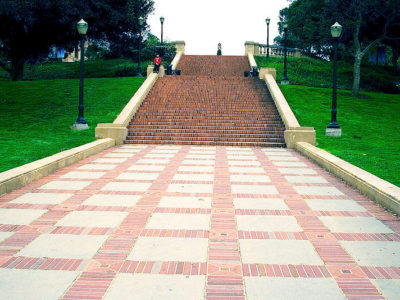When I told my friends and family in England that I had been accepted into UCLA for a semester of study abroad, I received the same response from all of them: “You’ll get a lovely tan! Try and get a picture of (insert celebrity name)! Make sure you walk up to the Hollywood sign!”
There would be congratulations, questions about courses, accommodation and how easy it was to get a good cup of tea. Then a silence, like a lead weight, then:
“Be careful.”
Though I’d pushed it back into the recesses of my mind when I’d been applying, distracting myself with weather forecasts and tourist spots, the idea of attending a college in the U.S. always felt shadowed by an overhanging cloud, a niggling worry that wouldn’t quite go away.
Before applying to U.S. colleges, I googled the last time they’d experienced a fatal shooting in or near the campus. I factored this into my decisions.
When I arrived, I found myself assessing lone people in crowded places—did they look like they could be carrying a gun?
When I sat down in my lecture hall for my first class at UCLA, I looked for the nearest exit, calculated how quickly I could leave and if I could squeeze myself under my chair far enough to hide from an active shooter.
Yes, maybe (definitely) I’m being overdramatic. However, in my defense, my mother is a cop, and it makes you hyper-aware of any potential danger that might be lurking. After the Manchester bombing of Ariana Grande’s concert, which several of my classmates attended, my mum gave me intricate instructions on how to react. She told me to always notice which exits to take and who I should ring if I found myself in a similar situation. After moving from my seaside hometown to London for my first years of university in the wake of the Westminster Bridge attack, my mum explained in detail how to react should someone run at me with a knife.
I avoided walking over bridges and, despite having lived in London for two years, never took the Tube for fear of an attack. I spent my life in a constant state of self–preservation, though these precautions have become so natural to me that I almost forget why I’m doing them. I’m aware that I’m often protecting against unavoidable things, acts of terror that succeed in spite of safeguarding. All I can really do is hope I’m not in the wrong place at the wrong time.
That makes the cloud that hangs over my UCLA experience even more frustrating.
I’m prepared to cope with the universal fears: mugging, crime, robbery, rape (armed with my key knuckle-duster), nuclear war. Cheery. But to add “being shot” to the list seems a bit much. I don’t quite know how Americans cope with all that, especially since there’s laws that can change it. And I know, it’s not that simple. You have a complex political system of Congresses and vetoes and 230-year-old Constitutions that make the laws and weave guns into the fabric of American life.
I get why a gun might seem comforting—I get the need to protect yourself against all the other horrible stuff in the world. But to move from the UK, where a lack of gun regulations would be unthinkable, to a country where the issue of gun control is still being hotly debated, is bizarre and frankly scary. My mum, while on duty, has not once felt incapacitated because she wasn’t carrying a firearm. She used defensive moves, which she passed onto me, and non–fatal methods of apprehension to successfully protect herself. The suspects she apprehended were never allowed to carry a firearm in the first place. The fact that guns fired by police officers in the U.S. enable prejudice and racism resulting in fatalities is, quite frankly, horrifying.
As I said, I’m not an American.
Perhaps I’m lacking the patriotic fire that merits a debate about gun control or missing the detailed scholarly and practical knowledge that would change my perspective. I’m basing my assessment on my own personal cloud of worry, one that that has hung over my head since I touched down in LAX.
But I think it’s important to know: remembering the last time there was a shooting at your school isn’t normal. Guns are terrifying. But so is Brexit. So lose-lose I guess.



















